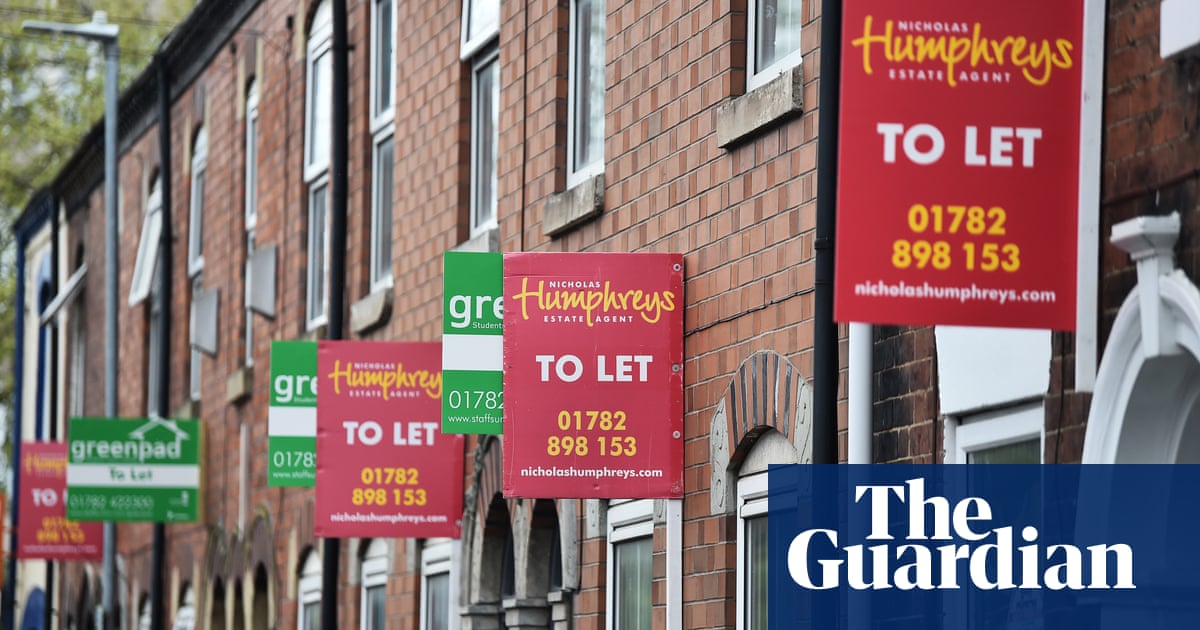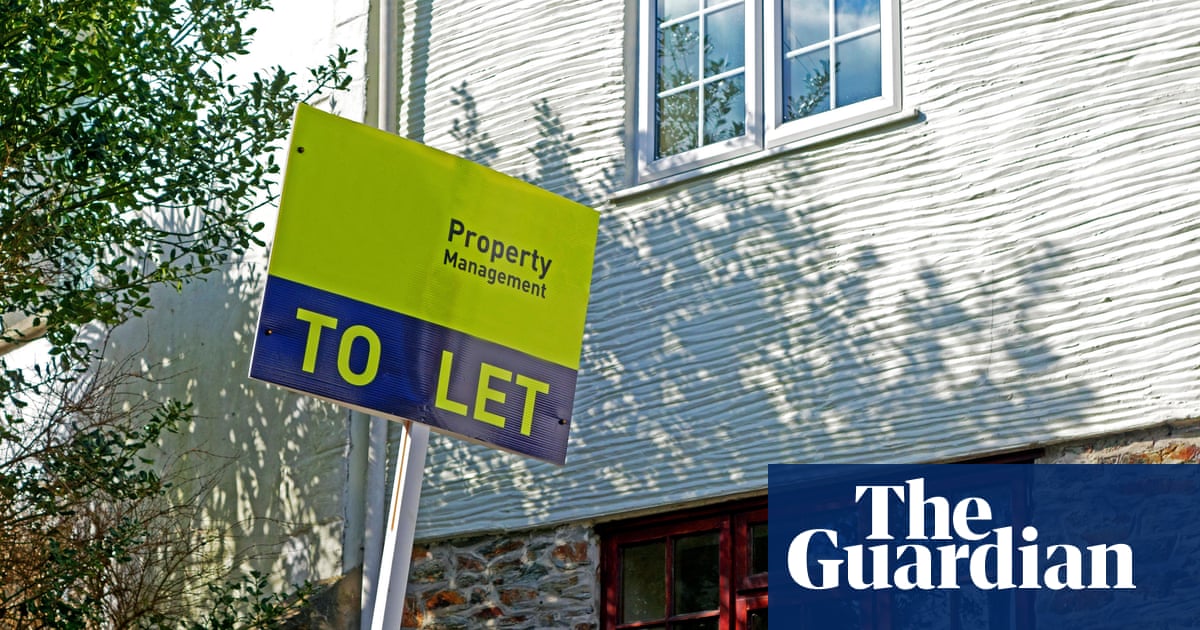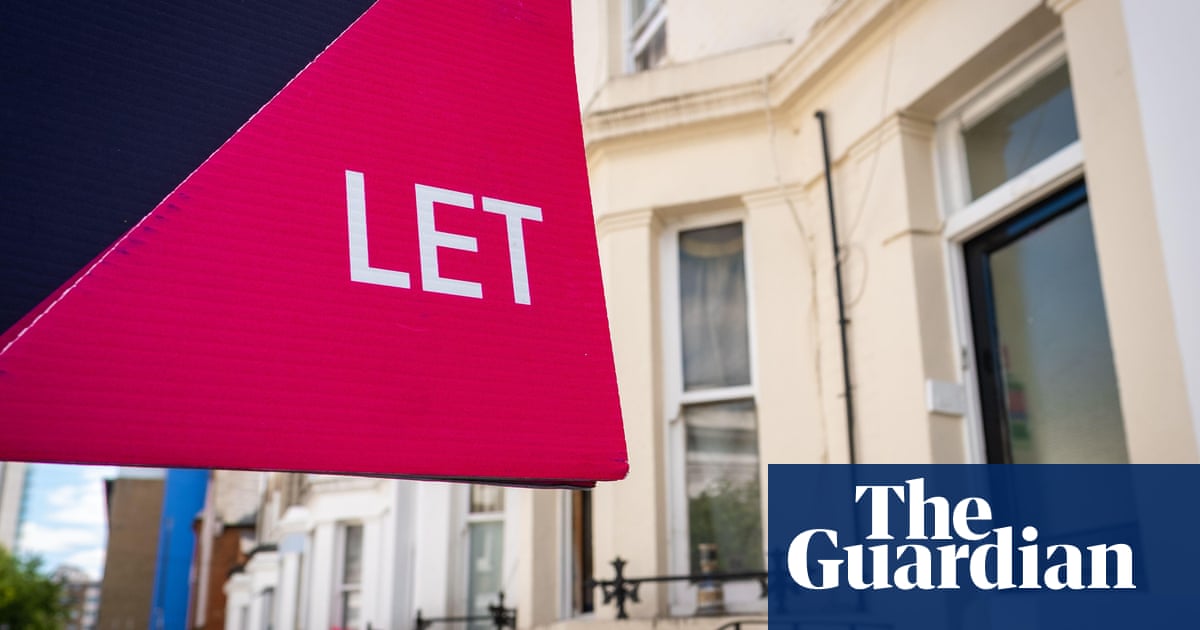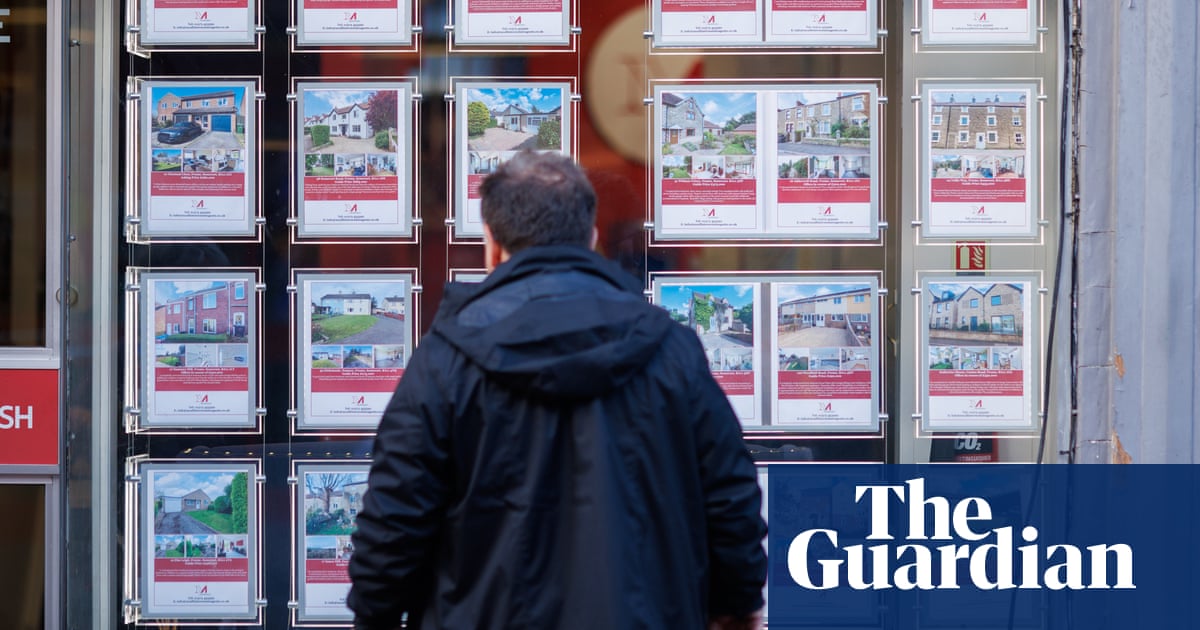
Private renters in England were hit by a triple whammy of bad news on Thursday as official figures showed soaring no-fault evictions, a net loss of more than 16,000 homes for social rent and a fresh delay to long-promised laws to give renters greater security.
The number of households evicted by bailiffs as a result of no-fault evictions rose 39% in 2023 compared with 2022, according to analysis by the housing charity Shelter of new Ministry of Justice figures.
Rent campaigners said it showed a worsening trend “blighting the lives of renters across our country”.
It brings the number of households thrown out under so-called section 21 notices since the government first announced it would ban the practice almost five years ago to 26,000. Section 21 allows landlords to remove tenants for no reason with just two months’ notice and is a major driver of homelessness.
A bill outlawing the practice is going through parliament, but is now not expected to be debated again until next month, after plans for upcoming parliamentary business were confirmed on Thursday by Penny Mordaunt, the leader of the Commons.
A further 30,230 landlords started no-fault eviction court proceedings in 2023 – a 28% rise in one year.
Polly Neate, the chief executive of Shelter, accused the government of “bowing to vested interests while renters are marched out of their homes in their thousands”.
There have been concerns that landlords in parliament have put pressure on the government to water down reforms protecting tenants. About one in five households in England now rent from a private landlord – double the number at the start of the millennium.
Meanwhile, there has been a net loss of social housing – either through sell-offs or demolition – of more than 16,000 social homes last year compared with the previous year, according to analysis of official figures by Crisis, a homelessness charity.
A total of 25,749 social homes were either sold or demolished last year in England, yet just 9,500 were built. It means that in the past decade, there has been a total loss of more than 180,000 social homes, which are offered at the lowest rents – typically a third of market rates.
The same figures showed 1.28 million households in England are currently stuck on council waiting lists for a social home.
“It’s disgraceful to see the number of social homes continue to be decimated,” said Matt Downie, Crisis’s chief executive. “This is robbing over a million households stuck on council waiting lists of the opportunity of a safe home.”
Neate called for the renters (reform) bill to be delivered to make renting “safer, fairer and more secure” but said the government must “oppose attempts to water down the bill from inside its own ranks”.
“When they head for the ballot box, England’s 11 million renters will remember who stood with them,” she added.
However, renters appear to be turning away from electoral politics. The likely turnout of non-homeowning millennials – people aged 24 to 43 – is expected to be down eight percentage points at the next general election compared with the last one, according to analysis by the Resolution Foundation. Labour and the Conservatives are both expected to face a fall in turnout from this group.
A spokesperson for the Department for Levelling Up, Housing and Communities said: “Our landmark renters (reform) bill will deliver a fairer private rented sector for both tenants and landlords. It will abolish section 21 evictions – giving people more security in their homes and empowering them to challenge poor practices … The total stock of social housing has grown by 151,000 since 2010, whereas in the previous 13 years it fell by 420,000.”












